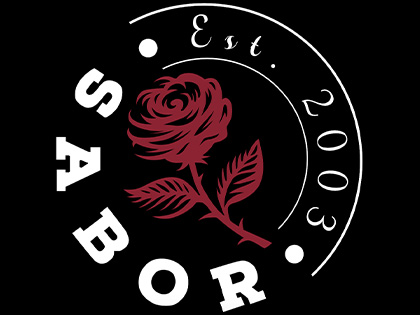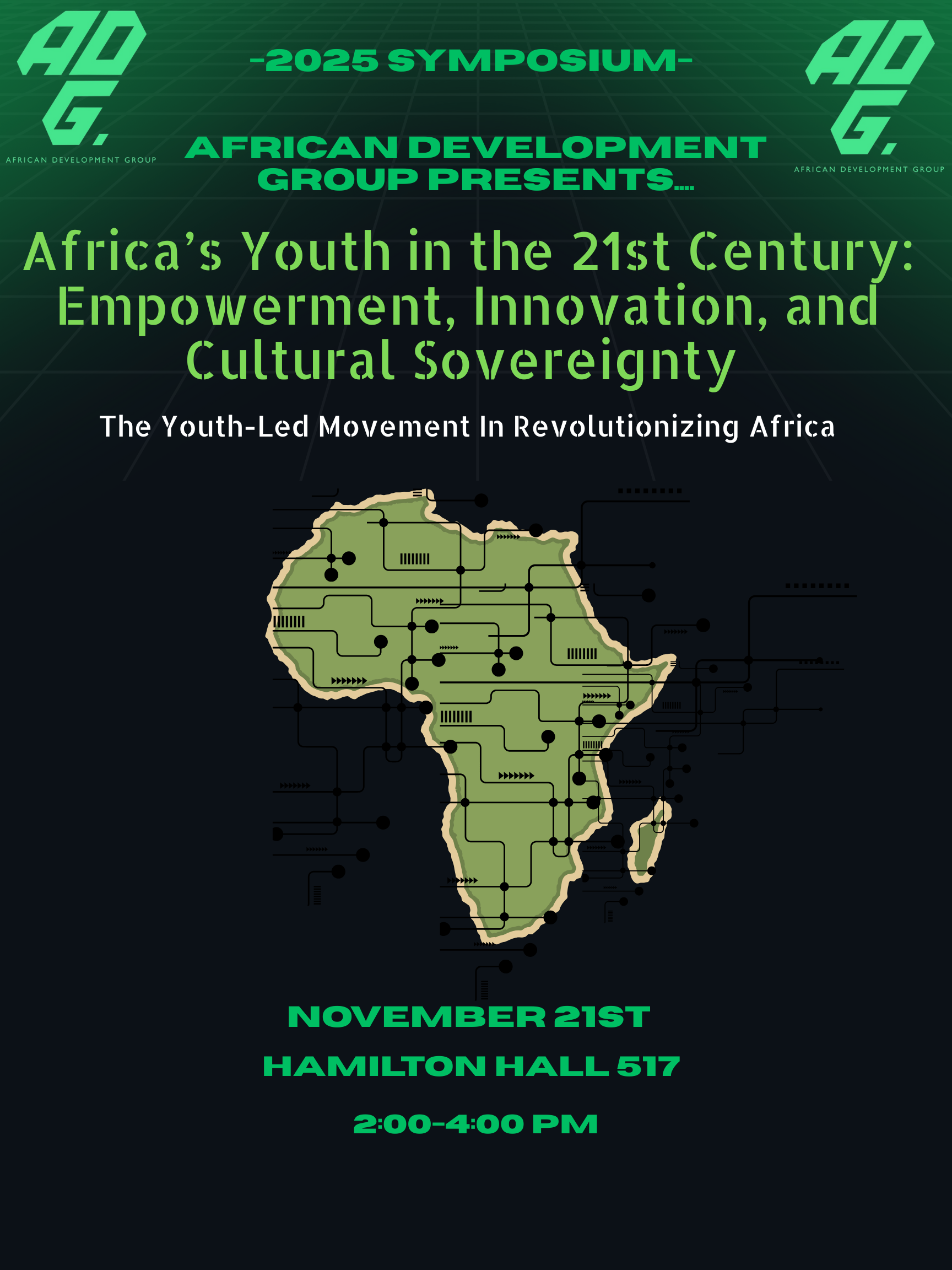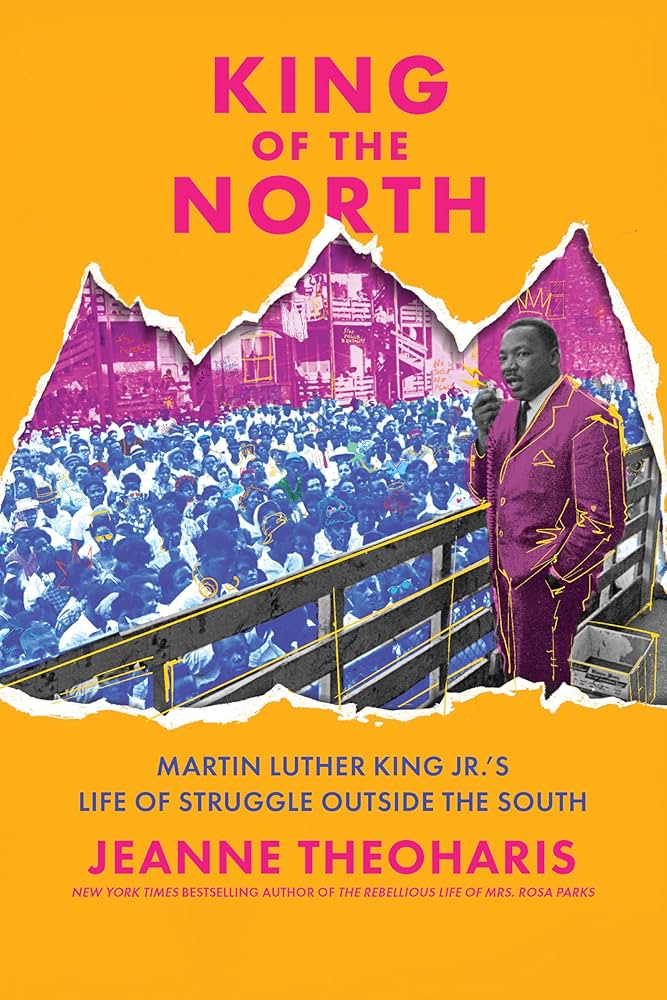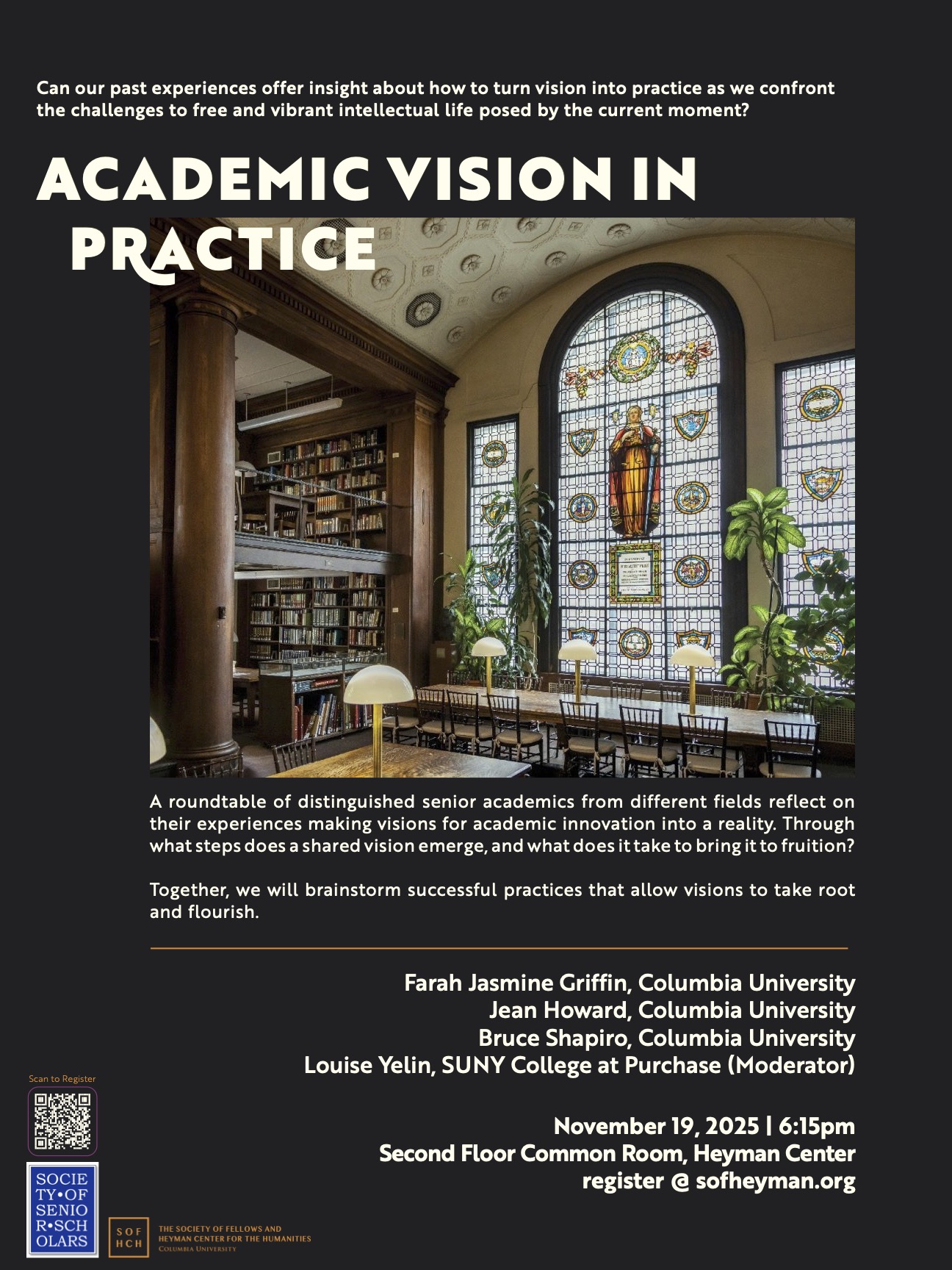Past Events

Join guest editors Sarah Haley and Emily Thuma, S&F Online Senior Editor Sandra Moyano-Ariza, and S&F Online Executive Editor Rebecca Jordan-Young to mark the release of the Fall 2025 issue of The Scholar and Feminist Online, “Abolition Feminism and the Politics of Reproduction.” This conversation will focus on the issue’s development and key questions and themes, as well as its special release in print to expand accessibility.
The new issue of S&F Online brings together timely contributions within the emergent intersection of abolition feminism and social reproduction at a moment when carcerality continues to proliferate under new guises. This framework makes visible the carceral state’s imbrication in the maintenance of everyday life while insisting on the long genealogy of feminist struggles that have always understood abolition as a reproductive question. These contributions examine how gendered, racialized, and classed forms of life are both sustained and constrained by carceral systems, and how abolitionist praxis reimagines and rebuilds the reproduction of the social otherwise.
Registration is required. The event is only open to BC and CU ID holders. Refreshments will be provided. Organized by the Barnard Center for Research on Women.

Join CUAAPI Interboard for a discussion about tea and imperialism. CUAAPI will be partnering with the tea stand to provide tea for attendees!

Mi Querencia: A Narrative Cruise Through the Manito Homeland, a poetry reading by Levi Romero (Professor Emeritus of Chicana/o Studies, University of New Mexico) will be taking place on Wednesday, December 10 from 6:00-7:30pm in 457 Schermerhorn Extension.
All are warmly invited to attend a special evening of Chicanx poetry by Levi Romero, inaugural Poet Laureate of New Mexico and author of In the Gathering of Silence (1996), A Poetry of Remembrance (2008), and Sagrado: A Photopoetics Across the Chicano Homeland (2013). In stark and loving detail, Romero’s writing traces the tangled histories of Spanish and U.S. imperialism in New Mexico, as well as the powerful connection to place (querencia) that has emerged among the region’s Indo-Hispano communities. Increasingly, Romero’s heritage work has placed him at the center of interdisciplinary conversations, including with archaeologists at Columbia University. Join us as Romero embarks on a cruise through the backroad stories of Nuevomexicano culture and history.
Co-sponsored by the Departments of Anthropology, American Studies, and Spanish and Latin American Studies, the Center for the Study of Ethnicity and Race, and the Columbia Center for Archaeology.

What can we learn from past moments when universities, students and intellectuals, have been central to the struggle against authoritarian repression? What long-term and short-term strategies (from litigation to mass mobilizations to cultural resistance) have been developed, alongside or in conjunction with other social movements and institutions? How did they sustain effective resistance activity and adapt to changing policies and practices of repression? Do present historical circumstances demand different tactics and strategies (e.g., the fact of social media and AI, or the nature of the neoliberal university)? Focusing on the university as a key locus of authoritarian and anti-authoritarian struggles, this AAUP event will consider the university as a target of repression and as a possible engine of resistance.
For more information about panels and speakers and to register for this event, click here.

The Center for the Study of Ethnicity and Race and Institute for the Study of Sexuality and Gender are hosting a joint Holiday Party! We’d like to cordially invite CSER students and faculty, and their guests, to join us for an evening of food, drinks, music, and fun. Dinner options from Beyond Sushi (vegan) and Tropical Sensation will be provided.
RSVP HERE: https://forms.gle/3SyXfVB3hF9w2gaK9
*Please note that, unfortunately, Deutsches Haus is not wheelchair accessible*
Questions? Email cser@columbia.edu and/or issg@columbia.edu.

From Apartheid to Democracy is a new book with a singular focus: to provide a practical plan to end apartheid and occupation rule and lay the groundwork for democratic decision-making on the future governance of Israel-Palestine. Join the Middle East Institute for a discussion with the co-authors, moderated by Professor Lisa Anderson.

CU Sabor is Columbia’s University’s first ever established Latin Dance team. Sabor is an exclusively student-run dance team dedicated to celebrating Latin and Caribbean culture through dance, music and the arts. As a community, Sabor looks to create a safe space for students from underrepresented backgrounds to enjoy, explore, and express themselves through Latin dance traditions.
Each year, Sabor hosts a Fall Showcase, a two hour dance performance including styles and music from all over the Americas. Each piece is carefully designed by our talented student choreographers. The performance is held to raise funds for Sabor’s outreach program called RELEVE. RELEVE is a 2-day long immersion program that invites FGLI high school students from all around New York City to spend a weekend at Columbia University.
This year’s Fall Showcase’s theme is “Un Verano en Nueva York.” It hopes to celebrate all different forms of Latin identity by exploring the beauty and diversity of New York City. In choreographing pieces, students were asked to think about how cultural communities are formed in and by the city. For tickets please click here, and for additional information checkout Sabor’s Instagram page (@cusabor).

Columbia’s African Development Group presents their 2025 symposium, Africa’s Youth in the 21st Century: Empowerment, Innovation, and Cultural Sovereignty.
Africa’s youngest generation is stepping into its power and reshaping the continent’s political, economic, and cultural future. This symposium explores how youth can drive sustainable growth, reclaim cultural identity, challenge neocolonial structures, and expand access to education while advancing gender equity. Bringing together voices from the arts, business, policy, and social justice, the conference highlights real, actionable strategies for building a more self-reliant and globally influential Africa.

Please join Frank A. Guridy (Dr. Kenneth and Kareitha Forde Professor of African American and African Diaspora Studies and Professor of History; Executive Director of the Holder Initiative at Columbia University) and Jeanne Theoharis (Distinguished Professor of Political Science at Brooklyn College of the City University of New York) as they discuss Professor Theoharis’s new book, King of the North: Martin Luther King Jr.’s Life of Struggle Outside the South.
The first 50 attendees to check in will receive a free copy of Professor Theoharis’s book.
6:30 – 7:30 p.m. (Doors open at 6:00 p.m.) | Conversation on King of the North: Martin Luther King Jr.’s Life of Struggle Outside the South & Audience Q & A
7:30–8:30 p.m. | Reception (refreshments will be served)
Registration for this event is required.

This roundtable brings together distinguished senior academics from different fields to reflect on their experiences with realizing a vision for academic innovation. By what steps does a shared vision emerge, and what does it take to bring it to fruition? Are there predictable challenges in realizing an innovative academic vision, and how can these be overcome or avoided?
Together, we will brainstorm successful practices for bringing academic visions to life, particularly those grounded in shared governance and academic freedom. Can our past experiences offer insight into today’s challenges? What guidance might we offer younger colleagues striving to realize their own visions.
To help us coordinate access for off-campus guests, please register in advance using this link. Hosted by the Society of Fellows and Heyman Center for the Humanities.

